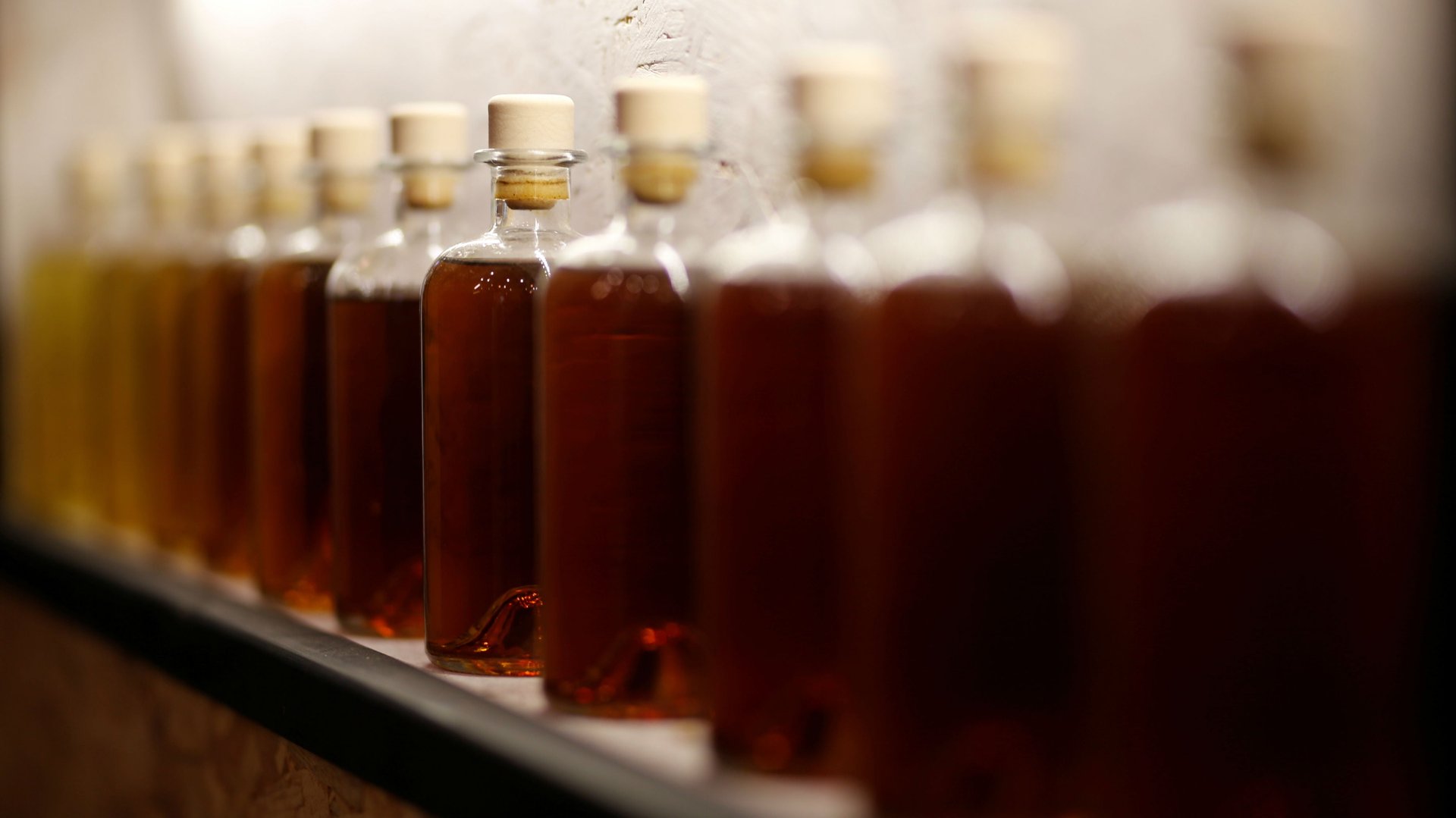A new study confirms liquor makes you confident and gives you all the feels
Unofficially, everyone knows that different kinds of booze will give them a different kind of night. But now, data from one of the largest surveys on drug and alcohol use finally prove it: hard liquor gives most people that extra ~swag~.


Unofficially, everyone knows that different kinds of booze will give them a different kind of night. But now, data from one of the largest surveys on drug and alcohol use finally prove it: hard liquor gives most people that extra ~swag~.
That’s based on findings from the 2016 Global Drug Survey, run by an independent research organization based in London. The survey was distributed through print, digital, and social media in 11 different languages, and ultimately included 29,000 people between 18 and 34 years old, from 21 different countries.
Everyone who took the survey responded to questions about how they felt after drinking wine, liquor, beer, and cider—though cider didn’t have enough responses so was left out of the final analysis—and their drinking habits, like how often and how much they drank. They also reported their age, gender, and whether or not they attended high school to give a rough estimate of their socioeconomic class. Researchers from the NHS Trust in Wales and King’s College London then analyzed their responses, and published their work in BMJ Open on Nov. 21.
They found that, in general, liquor tended to rev people up: More people reported experiencing every emotion included in the survey (except for feeling “relaxed” and “tired”) when they drank spirits. Red wine (unsurprisingly) made over 60% of respondents feel sleepy, compared to only 39% for beer, the next highest category.
That heightened feeling of emotion brought on by liquor has a dark side: 30% of respondents said liquor made them feel more aggressive. That was more than three times the number of people who reported feeling aggressive after drinking beer, and 10 times the number for either type of wine.
Breaking down the results further, the research team found that men were more likely to report feeling aggressive when drinking in general compared to women. In addition, survey-takers whose reported drinking habits suggested they were alcohol-dependent—based on a set of questions included in the survey called the Alcohol Use Disorders Identification Test—were more likely to report aggressive feelings after drinking than the general population. This same group was also more likely to report feeling all of the more positive emotions when drinking, too. That sounds like a contradiction, but it likely suggests that these are people who tend to use booze to heighten all sorts of feelings, from celebrating to trying to feel better to wallowing in pain.
The study doesn’t offer any insight into why different alcoholic drinks make people feel differently. In addition, self-reported data are only as good as a participant’s memory, and the survey didn’t ask how quickly they were drinking, what their moods were like before they took the first sip, or if there was something like dancing or drugs involved that may have changed the overall experience.
Practically, the researchers think that showing the relationship between drinking and emotions could lead to better ways to help people who may have a drinking problem. But for the rest of us, it’s proof of what we already know: tequila usually makes for a pretty good night.